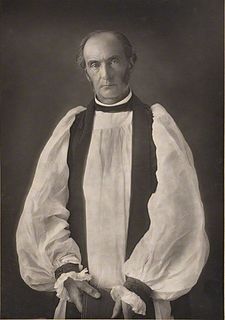
Edward John Moreton Drax Plunkett, 18th Baron of Dunsany, was an Anglo-Irish writer and dramatist; his work, mostly in the fantasy genre, was published under the name Lord Dunsany. More than ninety books of his work were published in his lifetime, and both original work and compilations have continued to appear. Dunsany's œuvre includes many hundreds of published short stories, as well as plays, novels and essays. He achieved great fame and success with his early short stories and plays, and during the 1910s was considered one of the greatest living writers of the English-speaking world; he is today best known for his 1924 fantasy novel The King of Elfland's Daughter and The Gods of Pegāna, where he devised his own fictional pantheon and laid the groundwork for the Fantasy genre. He was the inventor of an asymmetric version of chess called Dunsany's Chess.
The title Baron of Dunsany or, more commonly, Lord Dunsany, is one of the oldest dignities in the Peerage of Ireland, one of just a handful of 13th- to 15th-century titles still extant, having had 21 holders, of the Plunkett name, to date. Other surviving medieval baronies include Kerry now held by the Marquess of Lansdowne, Kingsale, Trimlestown, Baron Louth and Dunboyne.

William Conyngham Plunket, 4th Baron Plunket was Dean of Christ Church Cathedral and Archbishop of Dublin in the Church of Ireland.

Rowland FitzEustace, 1st Baron Portlester was an Irish peer, statesman and judge. He was one of the dominant political figures in late fifteenth-century Ireland, rivalled in influence only by his son-in-law, the "Great" Earl of Kildare.
Plunkett, a surname often associated with Ireland, possibly of Norse or Norman origin, may be spelled Plunkett, Plunket, Plunkit, Plunkitt, Plonkit, Plonkitt, Plonket, Plonkett, or Plunceid, and may refer to:
Earl of Fingall and Baron Fingall were titles in the Peerage of Ireland. Baron Fingall was a title in the Peerage of the United Kingdom. The seat of the title-holders was, from its establishment until 1953, Killeen Castle in County Meath, Ireland, and there was an ongoing close relationship with the related Plunkett family of Dunsany, and with the Viscounts Gormanston, with whom they intermarried. Around 1426, Christopher Plunkett was created Baron Killeen: his seven sons founded five separate branches of the Plunket family, including the Plunkets of Dunsany, Rathmore and Dunsoghly. He also had a daughter Matilda, who became celebrated as "the bride of Malahide", when her first husband, Thomas Husssey, Baron Galtrim, was reputedly murdered on their wedding day.
John William Plunkett, 17th Baron of Dunsany was an Anglo-Irish Conservative politician and peer.
Christopher Plunkett, 1st Baron of Dunsany was an Irish peer. He was the second son of Sir Christopher Plunkett, 1st Baron Killeen.

Killeen Castle, located in Dunsany, County Meath, Ireland, is the current construction on a site occupied by a castle since around 1180. The current building is a restoration of a largely 19th century structure, burnt out in 1981.
John Span Plunket, 3rd Baron Plunket of Newtown, County Cork was an Irish peer and Queen's Counsel. He was the second son of William Plunket, 1st Baron Plunket, and Catherine MacAusland. He succeeded his brother Thomas Plunket, 2nd Baron Plunket in 1866. He married Charlotte, daughter of the eminent judge Charles Kendal Bushe.
Randal Arthur Henry Plunkett, 19th Baron of Dunsany was an Irish peer. An only child, he was the son of author and playwright Edward Plunkett, 18th Baron of Dunsany and Lady Beatrice Child Villiers, daughter of Victor Child Villiers, 7th Earl of Jersey.
John Barnewall, 3rd Baron Trimleston, was an Irish nobleman, judge and politician. He was the eldest son of Christopher Barnewall, 2nd Baron Trimlestown and his wife Elizabeth Plunket, daughter of Sir Thomas Fitz-Christopher Plunket of Rathmore, Lord Chief Justice of the King's Bench in Ireland and his second wife Marian Cruise. He succeeded his father as 3rd Baron about 1513.
Richard Plunkett (c.1340-1393) was an eminent Irish judge and statesman of the fourteenth century, who held the offices of Lord Chief Justice of Ireland and Lord Chancellor of Ireland. His descendants held the titles Baron Dunsany, Baron Killeen and Earl of Fingall.
Jenet Sarsfield, Baroness Dunsany was an Anglo-Irish noblewoman who lived in Dublin during the Tudor era. She is chiefly memorable for having married no less than six husbands.

Robert Shilyngford was Mayor of Dublin in 1534–35. Apart from his tenure of this office, he is mainly remembered as the first of the six husbands of Jenet Sarsfield.
Edward Plunkett, 4th Baron of Dunsany was an Anglo-Irish nobleman: he was killed in battle during the Irish Rebellion of 1520-1.
The Brotherhood of Saint George was a short-lived military guild, which was founded in Dublin in 1474 for the defence of the English-held territory of the Pale. For a time it was the only standing army maintained by the English Crown in Ireland. It was suppressed by King Henry VII in 1494, possibly due to his suspicions about the Brotherhood's loyalty to his dynasty. It was not an order of knighthood, although some of its individual members were knights.
John Plunkett, 3rd Baron of Dunsany was an Anglo-Irish nobleman.
Sir Thomas Fitz-Christopher Plunket (c.1407-1471) was a leading Irish lawyer and judge of the fifteenth century who held office as Lord Chief Justice of Ireland. He was an ancestor of the Duke of Wellington in the female line. His second marriage to the heiress Marian Cruise inspired the ballad The Song of Mary Cruys.




